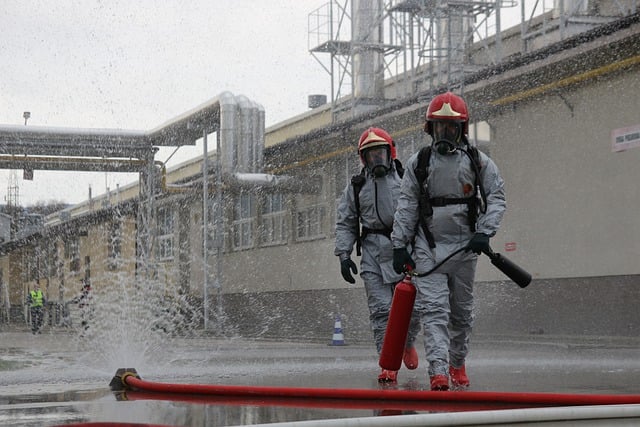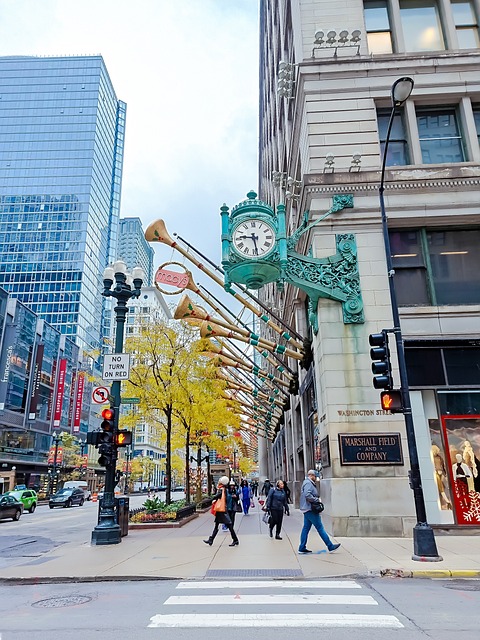Selling a fire-damaged house in Chicago requires strict adherence to Illinois' property disclosure laws. Sellers must disclose known defects like structural issues, water damage, mold, and environmental hazards via a Property Disclosure Report (PDR). Transparency protects both parties, enabling buyers to make informed decisions when considering a fast sale. Understanding exceptions for inaccessible areas and historical properties is crucial. A structured approach, guided by a professional realtor, expedites the process while mitigating legal complications.
“In the competitive Chicago real estate market, understanding Illinois’ property disclosure laws is paramount, especially for sellers looking to navigate the process of selling a fire-damaged house fast. This comprehensive guide delves into the intricate details of these laws, shedding light on seller obligations, buyer protections, and common exclusions. From fire damage disclosures to navigating legal requirements swiftly, this article equips you with the knowledge needed to ensure a smooth and compliant sale.”
- Understanding Property Disclosure Laws in Illinois
- What Does Fire Damage Entail for Legal Disclosures?
- Seller Obligations When Selling a Fire-Damaged Property in Chicago
- Buyers' Rights and Protections in Illinois Real Estate Transactions
- Common Exclusions and Exceptions to Disclosure Requirements
- Navigating the Process of Selling a Fire-Damaged House Fast Legally
Understanding Property Disclosure Laws in Illinois

In Illinois, property disclosure laws are designed to ensure transparency between sellers and buyers during real estate transactions. When selling a fire-damaged house fast in Chicago, understanding these regulations is crucial for both parties. The state requires sellers to disclose known defects or hazards that could affect the property’s value or safety. This includes, but is not limited to, structural issues, water damage, mold, lead-based paint, and any environmental concerns. Sellers must provide a Property Disclosure Report (PDR) to buyers, offering a detailed account of the property’s current condition.
Failing to disclose material information can lead to legal repercussions for sellers. Buyers, on the other hand, have a responsibility to review the PDR carefully and conduct their own inspections. While these laws promote fairness, selling a fire-damaged house fast in Chicago might require additional steps to ensure compliance. Sellers should thoroughly document repairs or renovations made after a fire to support any disclosures, ensuring a smooth transaction for both parties.
What Does Fire Damage Entail for Legal Disclosures?

When a property in Illinois, particularly in Chicago, is involved in a fire, it becomes crucial to understand the legal implications regarding disclosure. Fire damage can be extensive and may include structural harm, water damage from firefighting efforts, smoke residue, and even hidden issues like mold growth due to moisture intrusion. In such cases, potential buyers have the right to know about these issues before purchasing.
Legal disclosures in Illinois for fire-damaged properties are essential to protect both sellers and buyers. Sellers must disclose any known or suspected fire damage, providing detailed information about the extent of the harm. This includes offering documents or reports from professionals who can assess and verify the damage. By being transparent, sellers facilitate a smooth buying process, ensuring that potential buyers make informed decisions when considering to sell fire damaged house fast Chicago.
Seller Obligations When Selling a Fire-Damaged Property in Chicago

When selling a fire-damaged property in Chicago, sellers have specific obligations under Illinois property disclosure laws. In such cases, it’s crucial to disclose any known damage or issues related to the fire, including structural repairs needed, water damage, and potential health hazards like mold. Failure to do so may lead to legal repercussions and financial penalties.
Sellers must provide a detailed and honest account of the property’s condition, especially if it has been through a fire. This includes informing buyers about any ongoing or completed remediation efforts and offering relevant documentation. A transparent approach facilitates a smooth sales process, ensuring that buyers in Chicago are well-informed when considering to sell fire damaged house fast.
Buyers' Rights and Protections in Illinois Real Estate Transactions

In Illinois, real estate transactions are governed by stringent property disclosure laws designed to protect buyers. When selling a property, especially a fire-damaged house in Chicago, sellers must disclose any known defects or potential hazards that could impact the property’s safety and value. This includes structural issues, water damage, mold, lead paint, and other environmental concerns. Buyers have the right to inspect the property and request detailed information about these matters before finalizing the purchase.
If you’re considering selling a fire-damaged house fast in Chicago, it’s crucial to understand your legal obligations under these disclosure laws. Honest and transparent communication with potential buyers is essential to avoid future disputes. Additionally, providing accurate documentation regarding the extent of damage and any repairs undertaken can facilitate a smoother sale process. Buyers, in turn, are protected from unexpected surprises and can make informed decisions about their offer based on this information.
Common Exclusions and Exceptions to Disclosure Requirements

When it comes to selling a fire-damaged property in Chicago, understanding the exceptions to disclosure requirements is crucial. While Illinois has stringent property disclosure laws, there are specific instances where certain information may be exempt from disclosure. These exclusions often relate to areas that are not easily accessible or visible during a typical inspection, such as attics, crawl spaces, and enclosed walls. Additionally, historical or unique properties might have exceptions due to their specialized construction or age, ensuring buyers aren’t misled about repairs needed for these one-of-a-kind homes.
Another common exception involves previously disclosed damage. If a seller has already informed a buyer about fire damage, any subsequent disclosures related to the same issue may not be mandatory. However, it’s essential to provide accurate and up-to-date information to maintain transparency. Sellers should carefully review what is and isn’t required to disclose, especially when selling fire-damaged properties in Chicago, to ensure a smooth transaction and avoid potential legal issues.
Navigating the Process of Selling a Fire-Damaged House Fast Legally

When selling a fire-damaged house in Chicago, understanding the legal process is crucial for a swift transaction. The first step involves assessing the extent of damage and gathering necessary repairs estimates. This documentation is essential during the disclosure phase, where potential buyers will want transparency about the property’s history. Ensure all reports are up-to-date and readily available to expedite the selling process.
In Chicago, real estate transactions are tightly regulated, especially when dealing with properties affected by disasters like fires. Sellers must disclose any known issues honestly; failure to do so can lead to legal complications. Engaging a professional realtor familiar with these laws is beneficial. They can guide you through the disclosure forms and help negotiate terms, ensuring a lawful and efficient sale of your fire-damaged property in Chicago.
Selling a fire-damaged property in Chicago requires adherence to strict Illinois property disclosure laws. Understanding these regulations, from legal disclosures to buyer protections and seller obligations, is crucial for a smooth transaction. While there are common exclusions and exceptions, navigating the process legally and efficiently, such as selling a fire-damaged house fast in Chicago, involves comprehensive knowledge of these laws. By understanding your rights and responsibilities, you can ensure a successful sale while adhering to Illinois property disclosure requirements.






